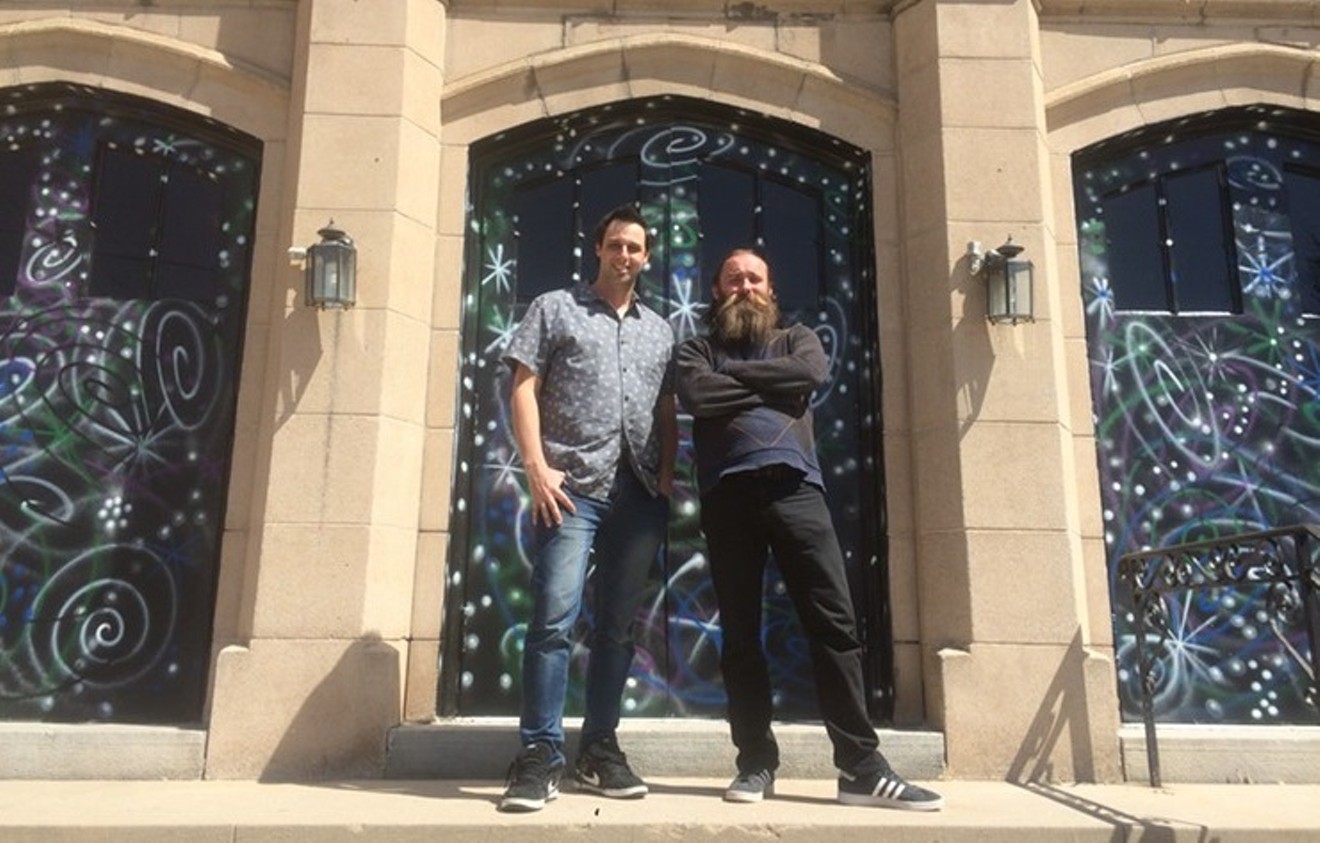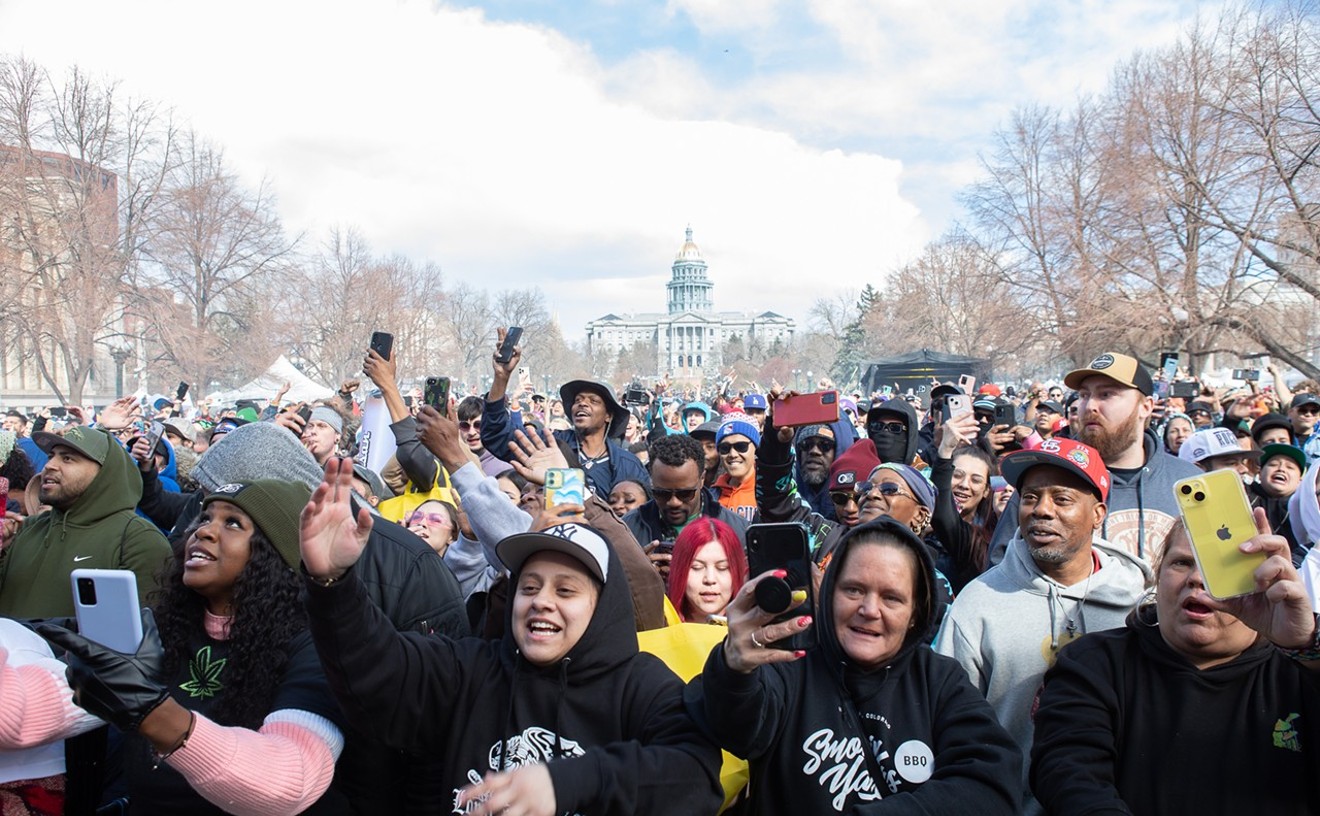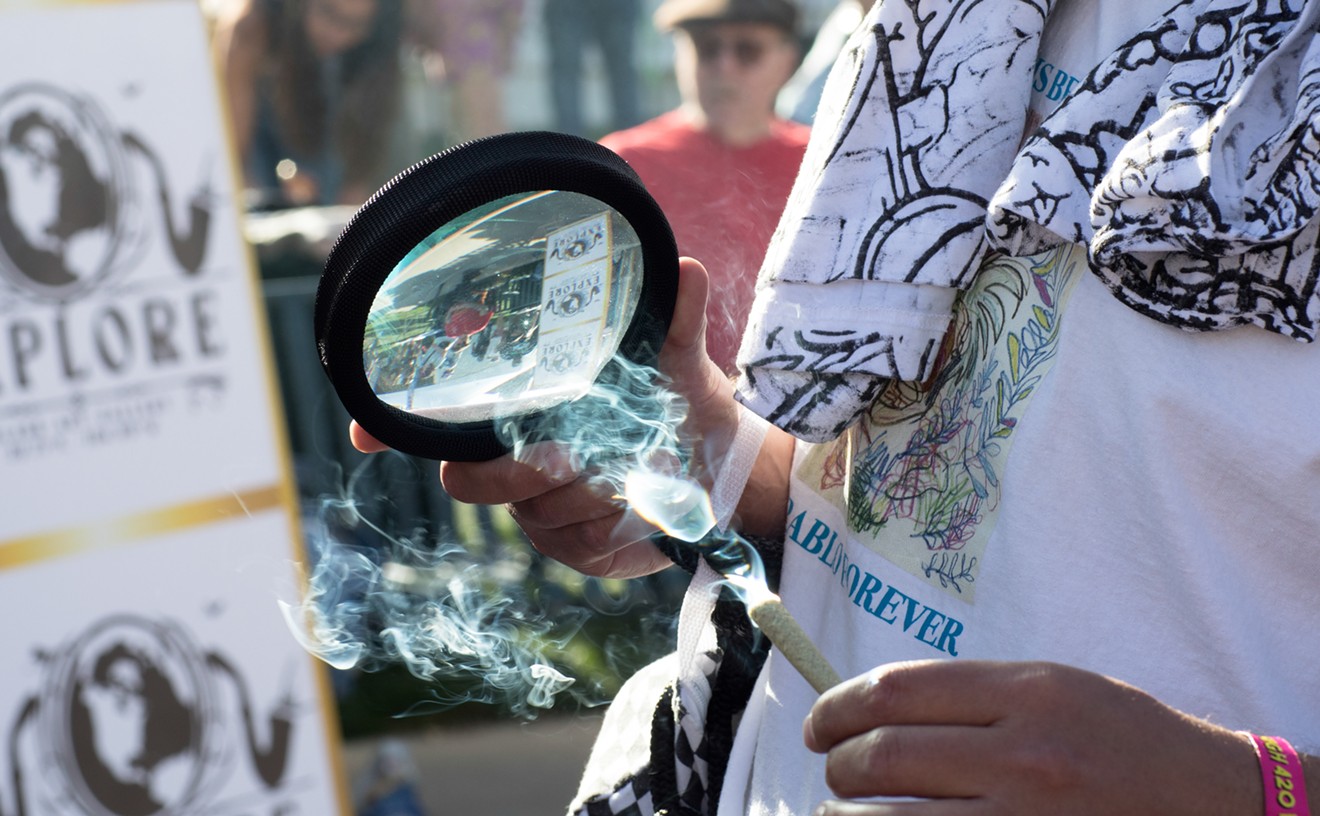The fight between the International Church of Cannabis and the City of Denver may finally be over, but which side really won? Over two months after one of the church's co-founders, Steve Berke, was found guilty of public pot consumption violations for his role in a 2017 4/20 party, another church co-founder was found not guilty of the same charges.
Lee Molloy — who, along with co-founders Berke and Briley Hale, was charged with allowing public pot consumption and violating the Colorado Clean Indoor Air Act during the church's inaugural 4/20 party in 2017 — was found not guilty by Denver County Judge Johnny Barajas on Friday, April 19.
Earlier, a jury had found Berke guilty on the same charges; a judge denied his motion for a mistrial. After that, Hale accepted a plea that would dismiss the charges against her if she completes 24 hours of community service and complies with six months of unsupervised probation.
All of the charges stemmed from the church's inaugural 4/20 event in 2017, during which undercover Denver police officers say they were able to freely enter the consumption-friendly portion of the celebration; the church's co-founders and their attorneys argued that the consumption portion of the event was private and required an invitation to get inside. Although none of the founders themselves were caught smoking marijuana that day, the trio was charged with public consumption: The Denver City Attorney's Office argued that they were complicit in allowing attendees to consume publicly under their watch.
After a juror in Berke's case told him that she felt pressured to find him guilty (a conversation that occurred outside of the courtroom immediately following the trial), Molloy's attorney, Warren Edson, thought that waiving the jury and instead asking the judge to determine the verdict would help his client's chances.
"There are very few times when I've waived a jury, but this time we were getting very specific about issues with the Colorado Clean Indoor Air Act, hemp versus marijuana, and issues and with their complicity defense," Edson explains, adding that the details of Molloy's case might have varied from those of Berke and Hale.
"The judge put a lot of emphasis on the fact that Lee himself appeared to take a lot of affirmative steps to make sure this was a private event," Edson says. "Under the complicity statues, he didn't find Lee had knowledge or intent to break the law, or let anybody inside who wasn't abiding by the rules and regulations of the service."
Although the maximum penalty that Molloy faced over the misdemeanor charges was $300 in fines and 24 hours of community service (Berke's punishment, levied by Barajas, was a $50 fine and nothing more), Edson is still upset over the city's use of resources. He believes that the Denver City Attorney's Office was trying to make a point against the church over social pot use — an issue that's been the focus of several fights between the city and venue owners and event organizers.
"This happened literally two years to date on April 20," he noted after Molloy's verdict came down on April 19. "I've been involved with this case for about twenty months. Even before our motions hearing, the city attorney spent over 100 hours on this case. Then we had more hearings, numerous trial appearances, a mistrial, and then we had more appearances. They had a full three-day trial with Steve, and now they had another trial today? They've got to be at 400 or 500 man hours right now. That's an incredible amount of resources and police effort."
Despite the long legal battle, Molloy was just happy to move on — and it wasn't lost on him that his verdict came in the day before April 20.
"It's just a wash of relief, really. Its 4/20, so now I get to go home, clean up and celebrate," he said shortly after the verdict was handed down. "It's a victory for our church, but it's also a victory for Coloradans who supported cannabis legalization. Hopefully, this will start moving things in the right direction."
[
{
"name": "Air - MediumRectangle - Inline Content - Mobile Display Size",
"component": "12017618",
"insertPoint": "2",
"requiredCountToDisplay": "2"
},{
"name": "Editor Picks",
"component": "17242653",
"insertPoint": "4",
"requiredCountToDisplay": "1"
},{
"name": "Inline Links",
"component": "18838239",
"insertPoint": "8th",
"startingPoint": 8,
"requiredCountToDisplay": "7",
"maxInsertions": 25
},{
"name": "Air - MediumRectangle - Combo - Inline Content",
"component": "17261320",
"insertPoint": "8th",
"startingPoint": 8,
"requiredCountToDisplay": "7",
"maxInsertions": 25
},{
"name": "Inline Links",
"component": "18838239",
"insertPoint": "8th",
"startingPoint": 12,
"requiredCountToDisplay": "11",
"maxInsertions": 25
},{
"name": "Air - Leaderboard Tower - Combo - Inline Content",
"component": "17261321",
"insertPoint": "8th",
"startingPoint": 12,
"requiredCountToDisplay": "11",
"maxInsertions": 25
}
]












